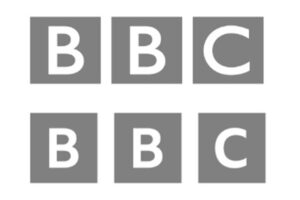
A 99th birthday facelift, including a new font named after its founder, cost the BBC £7 million, it has emerged.
The rebranding across BBC services last year included the creation of logos and the replacement of the Gill Sans font with “Reith”, named after its first director-general, Lord Reith.
The BBC declined at the time to reveal how much it had spent on the rebrand, which was overseen by the design agency Wolff Olins, for “commercial reasons”.
Before it was ordered to release the information, a BBC official said: “Disclosing how much the BBC spent in connection with the logo redesign would be likely to prejudice its ability to secure value for money.”
The argument was rejected.
The information commissioner ordered the corporation to disclose the cost after an eight-month freedom of information battle with the Daily Express. According to the newspaper, the cost of the revamp was £7.26 million.
The BBC said yesterday that the rebrand was a “modernisation of all our services, platforms and channels, over a number of years to ensure what we provide meets audience expectation”.
There would be “plenty of little changes, designed to make a big difference,” its chief customer officer, Kerris Bright, said last year.
The BBC said that it published more data and information about itself than any other broadcaster, adding that it responded to more than 93 per cent of its 2,000 freedom of information requests each year within the legal time frame.
It has justified the rebrand as important to its overall updating of digital services. It said that “updated, recognisable colours, logos and graphics will identify each service and help improve navigation between them”.
A recent National Audit Office report into the BBC’s digital offerings found that its iPlayer was lagging behind Netflix and Disney+ on user experience such as picture and sound quality, as well as the methods of recommending content to its users and its subtitling.
The BBC has made clear that its focus is on digital, with Tim Davie, its director-general, saying earlier this month that it was preparing for many of its linear TV and radio channels, such as BBC One and Radio 3, to be online only within the next decade. He said that it would “consolidate more activity behind a simple, single brand”, which would make it easier for audiences to find its content online.
Last year when announcing the rebranding, Bright said that the BBC’s own research showed that “audiences think some of our services look old-fashioned and out of date . . . They want a modern BBC that is easier to use and navigate to find the content they love and enjoy”.
The rebrand comes as the corporation faces acute spending pressures. The £159 licence fee has been frozen until 2024 and is then due to increase in line with inflation until 2027 when the existing Royal Charter ends. It has previously said that the freezing of the fee would lead to a £285 million funding gap by 2027, a figure that due to inflation it now believes will be closer to £400 million.
As part of cost-cutting plans, it has ended regional TV news bulletins for Oxford and Cambridge, made cuts to its World Service output and announced sweeping changes to its local radio output, which will mean the 39 stations in the BBC England network will share “regional” and “national” content from 2pm on weekdays and most of the weekend.
Read more:
BBC admits spending £7m on rebranding

